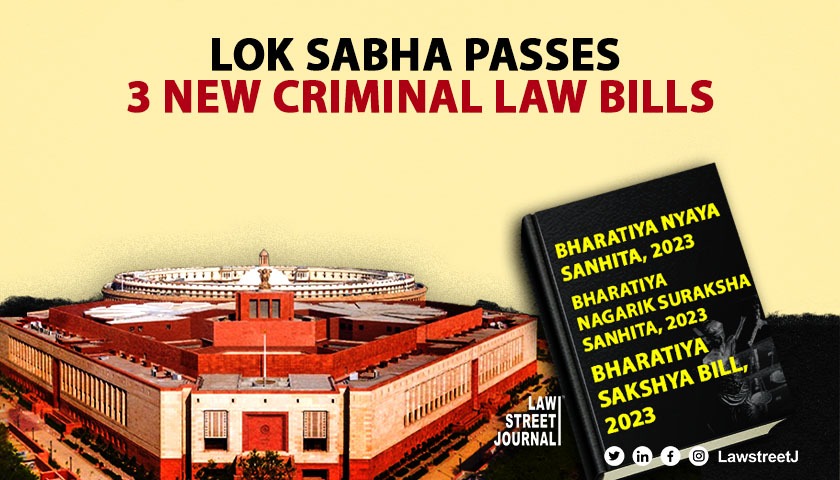New Delhi: India's criminal justice system is set for a complete transformation today with three new criminal codes replacing the entire set of British-era laws, including the Indian Penal Code.
Here are the top 10 points:
1. The Bharatiya Nyaya Sanhita, Bharatiya Nagarik Suraksha Sanhita, and Bharatiya Sakshya Adhiniyam will supplant the Indian Penal Code, Code of Criminal Procedure, and Indian Evidence Act.
2. According to the government, the laws were revised to expedite justice and align with contemporary times and modern crimes. Judgments must now be delivered within 45 days of trial completion, and charges framed within 60 days of the first hearing.
3. The new regulations will permit any individual to file a Zero FIR at any police station, irrespective of jurisdiction, and will allow online registration of police complaints and electronic serving of summons.
4. Videography of crime scenes will be mandatory for all serious offenses. Electronic summonses will streamline legal procedures.
5. Union Home Minister Amit Shah stated that the change aims to ensure "speedy justice and justice to all." Proper implementation will necessitate training and mandatory forensic team visits for offenses carrying a sentence of seven years or more.
Also Read: First FIR under new laws filed in Delhi
6. New provisions address emerging crimes such as gang rapes, mob killings, and false marriage promises. Shah mentioned this would boost the demand for forensic experts nationwide, which the National Forensic Science University (NFSU) will support.
7. As the new laws were being formulated, the NFSU's development was prioritized. Its campuses have been established in nine states, with plans to expand to 16 states.
8. Opposition parties, including the Congress, argue that the decision to implement the new criminal laws from July 1 was made hastily and required more consultation before enforcement.
9. West Bengal Chief Minister Mamata Banerjee has urged Prime Minister Narendra Modi to delay the implementation of these "hurriedly passed" laws, suggesting Parliament should review them again.
10. Chief Justice of India DY Chandrachud commented, "These laws signify a watershed moment for our society because no law affects the day-to-day conduct of our society like the criminal law."







![Only Central Govt empowered to undertake census, Centre tells Supreme Court [Read Affidavit]](/secure/uploads/2023/08/lj_7449_9c75a532-6157-429f-be90-4805dbb8a2ee.jpg)







